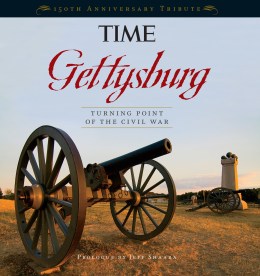
The first incoming shell whistled far overhead, exploding in the woods behind him, a burst of fiery smoke. Now more, shrieks that tore through the air to one side, a scattering of blasts in the trees. He cursed, dropped to one knee, felt the familiar anger, knew it was the answer, the Yankees’ role in the duel. They’re aiming at our guns and overshooting. Damn fools. Killing men who haven’t even started moving.
The ground jumped with each incoming shell, some of the new men squirming with fear, but there was nowhere to go, no other place to be. A sharp scream blew through a tree he could see, and he flinched, unavoidable. Through the ongoing roars of the guns came a man’s cry, a different kind of scream. Eyes stared that way, and he held up his hand, a furious glare they knew well, held them in place. The heads dropped again, many of the men pulling themselves into a tighter ball, becoming smaller, the only protection.
The artillery fire was numbing now, long minutes, maybe an hour, his lungs growing used to the smoke, the stink absorbed all through him, the impacts in a soft rhythm that made him sleepy. His eyes drifted shut, his shoulders slumped, the musket leaning up across one leg, his brain drifting off, thoughts of home, Virginia, his wife, tears and pleading, and finally, her surrender. He had marched away from her breathing the dust of 200 others, following the colonel’s horse, proud, energized men, filled with the spirit of this magnificent adventure, manufactured hatred for the Yankees, those dastardly devils, an army off to fight a war that no one really believed would happen. There were reasons why it did, of course, the most pronounced coming from the men who would stay home.
On the march, they had been swallowed by fury and dedication, officers inspiring them with raucous boasts of the weakness of the men in blue. The generals had come, great gatherings in open fields where men with clean uniforms told them of the honor of Virginia, as though some of the men might forget just why they had volunteered. Now, two years later, the energy remained, strengthened this time by the march into Pennsylvania, treading on Yankee soil. The generals came again, Pickett himself, rousing enthusiasm, so much talk of victory. He thought again of her, drying her eyes, and he missed her painfully. I will be home soon …
The artillery stopped.
He jolted awake, saw officers hustling to the front, the colonel, the company commanders, a horseman riding past, a staff, flags, the lieutenant rushing past him, calling out, the men standing up. The drums began now, punching the ice in his chest, and he added to the shouts, pulling the men into formation, the annoyance from the parade ground replaced by the urgency to get it done right. He stepped up close, men in two lines in front of him, jerked one man’s shoulder, closing the gap, straightening the line. He shivered, couldn’t avoid that, angry at himself, distracted himself by staring down the lines, rows of men stretching far out into the woods, drums all around, nervous talk, more shouted orders. The drums seemed to grow louder, filling him, and he fought to keep control, to keep them in control, his sweating fist gripping the musket tight by his side. Farther out front he saw the captain, motioning them forward, slowly, more focus on the lines, the formation. He looked to the side, other sergeants down the line, a quick glance, a nod, fire in the eyes, and now the new sound, felt a surge of relief … and panic. It was the bugle.
Out front, the officers watched as they stepped out from the woods. His own men cleared the trees, the lines perfect, and he looked to the left, saw entire brigades and much more, endless formations, more men than he had seen before. He felt his hands shaking, gripped the musket, shouted out something, angry words, needless, the men feeling their part in what he could see, this glorious unstoppable wave. He stared out past the men in front of him, the vast open field, the breeze rippling through tall grass, the enemy so very far away.
The drums pushed them forward, farther into the sunlight, the heat, the rhythm of the march, the sergeants doing what he did, keeping the men together. Now, from far to the front the first streaks of fire came toward him, and he knew it was Yankee artillery, all those guns that were supposed to be obliterated, wiped away. But they were there, and now, the Yankee gunners had targets. Far across the field, up the sloping hill, he could see motion, traces of blue, lines of men, the enemy peering up over their low stone walls, their protection, waiting.
To mark the 150th anniversary of the battle of Gettysburg, TIME has published a richly illustrated 192-page book, Gettysburg: Turning Point of the Civil War. To buy a copy, go to time.com/gettysburgbook






